Executed Free Speech is the name of the project telling about the crimes committed by the occupiers against Ukrainian journalists. It was implemented by the National Union of Journalists of Ukraine (NUJU). So far, media workers had the opportunity to familiarize themselves with the project’s idea in several regional centers of Ukraine. Recently, the project was presented in Dnipro.
To record media people’s stories
The participants in the roundtable were like-minded people who actively talk about the war in Ukraine and the crimes of the invaders. They volunteer, help displaced people, and, unfortunately, become targets for russian terrorists. Media professionals shared their stories and discussed the challenges modern journalism is facing.
“After February 24, 2022, a lot of journalists have been forced to leave their homes and move to safer cities. Dnipro was one of the first to receive displaced colleagues. Some traveled further by transit, and some stayed in our region. The Dnipro Journalists’ Solidarity Center (JSC), which operates on the basis of our Union‘s regional organization, provides assistance to anyone who needs it,” Oleksii Kovalchuk, the Board Chairperson of the Dnipro regional organization of the NUJU, addressed the audience so that Ukrainian media workers remain on guard at the information front.
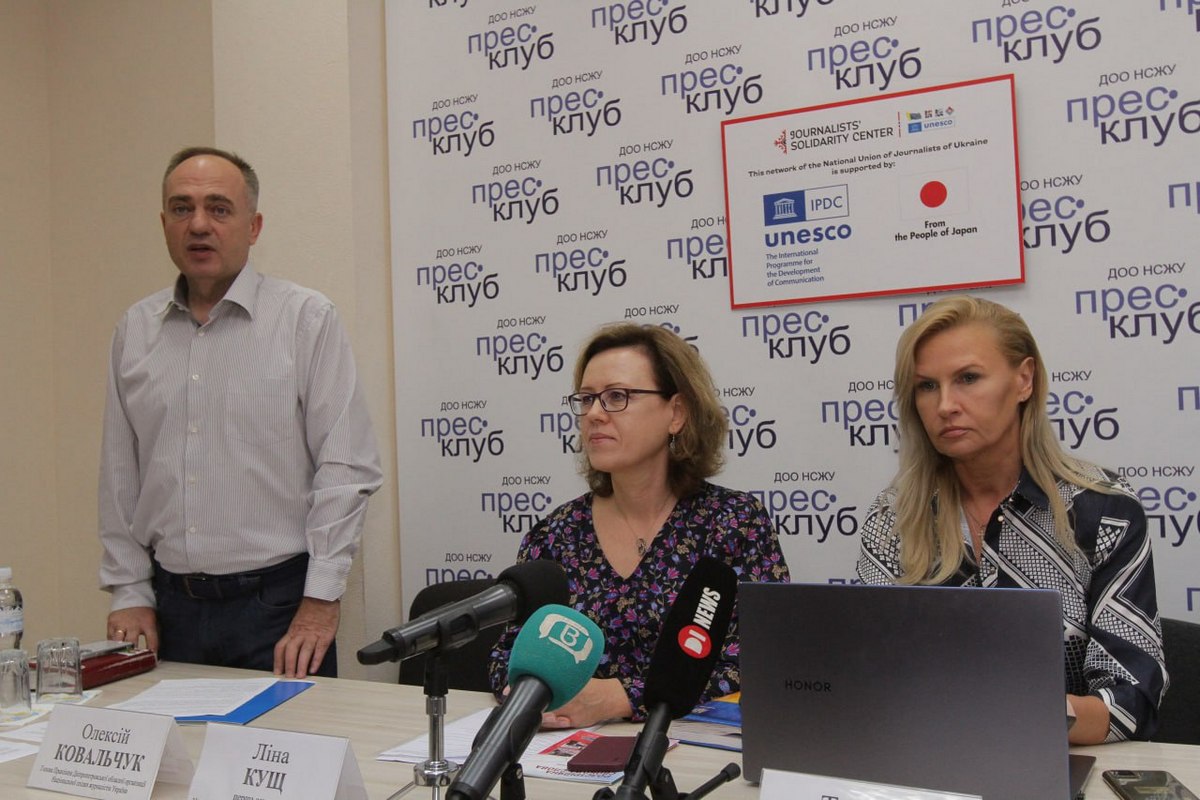
The First Secretary of the NUJU, Lina Kushch, noted that with the beginning of the full-scale invasion, the Union realized that it is necessary not only to help journalists do their work but also to record what is happening to the media workers themselves. It is essential to record the truth. Therefore, the Executed Free Speech project team recorded the video stories of more than 100 journalists who fell victim to or became witnesses of war crimes. These are media people from Kherson, Mariupol, Melitopol, Bucha, Kharkiv, Bakhmut, and other “hot spots.”
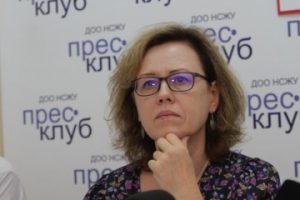 “The project was based on the idea of responsibility for crimes committed by russia against Ukrainian media workers. In the video stories, we talked about the fates of our colleagues and what happened to their cities and villages. The NUJU distributes these videos among international partners. The main goal is to give publicity and attract attention. We also hold meetings with the media, exchange opinions, and record new stories,” Lina Kushch noted.
“The project was based on the idea of responsibility for crimes committed by russia against Ukrainian media workers. In the video stories, we talked about the fates of our colleagues and what happened to their cities and villages. The NUJU distributes these videos among international partners. The main goal is to give publicity and attract attention. We also hold meetings with the media, exchange opinions, and record new stories,” Lina Kushch noted.
An expert on the safety of journalists of the NUJU‘s network of JSCs/journalist who moved from Mariupol, Tetiana Uralova, drew attention to the fact that with the beginning of the full-scale invasion, a significant number of journalists chose the path of war correspondents. The NUJU is interested in as many media professionals as possible being accredited. After all, there are no safe places in Ukraine, but there is a constant need for comments and filming from the scene of events. Due to the lack of accreditation, journalists have problems with this and cannot record the story.
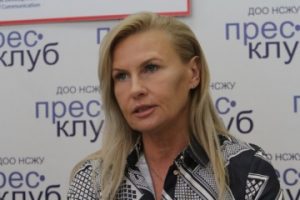 “Journalists risk their lives so that society receives information about the war. Media workers are civilians. They do not take part in combat action, but the ‘PRESS’ sticker is often a target for the enemy. Unfortunately, the russians are hunting journalists. Therefore, before going to a combat zone, one should think about the risks and prepare responsibly for a business trip, check the ammunition, the first-aid kit,” noted Tetiana Uralova.
“Journalists risk their lives so that society receives information about the war. Media workers are civilians. They do not take part in combat action, but the ‘PRESS’ sticker is often a target for the enemy. Unfortunately, the russians are hunting journalists. Therefore, before going to a combat zone, one should think about the risks and prepare responsibly for a business trip, check the ammunition, the first-aid kit,” noted Tetiana Uralova.
Special guests were invited to the event – journalists from the Dnipropetrovsk Region, whose video stories became part of the Executed Free Speech project. They are the editor of the newspaper Stepova Zoria and the Petropavlivka.city website, Iryna Sytnik; deputy editor of the Novi Rubezhi newspaper Nataliya Dolhikh, and the wife of the media personality from Volnovakha, Pavlo Yeshtokin, Kseniya Minina.
On the website of the Dnipro regional organization of the NUJU, we have repeatedly introduced colleagues to the stories of Iryna Sytnik. Our colleague has accreditation. She worked on the Donetsk and Zaporizhzhia axes and communicated directly with the military. She has collected a lot of stories from those trips. Some of them have already seen the light, and some will wait for Ukraine’s victory and will definitely be published.
“These 1.5 years have been extremely difficult. But despite all the challenges, people are waiting for our newspaper, we are developing the website and social networks, and we continue to engage in volunteer activities. We have even managed to provide jobs for journalists who left their homes because of the war,’ Iryna Sytnik shared.
At the beginning of the war, Nataliya Dolhikh, the deputy editor of the Novi Rubezhi newspaper, managed to cope with fear. Thanks to the newspaper and social networks, Nataliya and the entire newsroom’s staff continue to inform the community.
“Our village is relatively safe. That’s why we have to work. I’m glad we didn’t miss publishing a single issue. No matter how difficult it is in today’s realities. Every week, eight columns of the newspaper are filled with local news. We took on a difficult mission to write stories about our compatriots killed in the war. We communicate with their relatives: mothers, fathers, widows, children, sisters, brothers. And it is extremely difficult psychologically,” says Nataliya Dolhikh.
Those present also listened with particular interest to the memories of Pavlo Yeshtokin‘s wife, Kseniya Minina, from Volnovakha. Their family had to find a new home, build a new life, work, and be helpful. Now, the media people live in Zhovti Vody. There, they launched a site that has already found its audience.
“We need to know living heroes and talk about them every day. They deserve it, even though they are sometimes shy to share their stories,” Kseniya Minina said.
Journalists from Nikopol, a city bombarded by the enemy every day, were present at the event in the Union‘s regional organization. Valentyn Khoroshun, a migrant journalist from the Donetsk Region, came to meet with his colleagues. Colleagues whose homes were damaged as a result of rocket attacks also shared their stories – Daryna Sukhonis, a journalist at the Nashe Misto media holding from Dnipro, and Svitlana Romanenko, the editor of the Kryvyi Rih-based site 0564.ua.
On behalf of the NUJU, Lina Kushch presented the special award Cross of Civic Merit to the editors of the newspapers Pivdenna Zoria from Nikopol, Inna Shvydka, and Mezhivskyi Meridian, Yevhen Khrypun, as well as to the deputy editor of the Novi Rubezhi newspaper from Krynychky, Dnipropetrovsk Region, Nataliya Dolhikh.
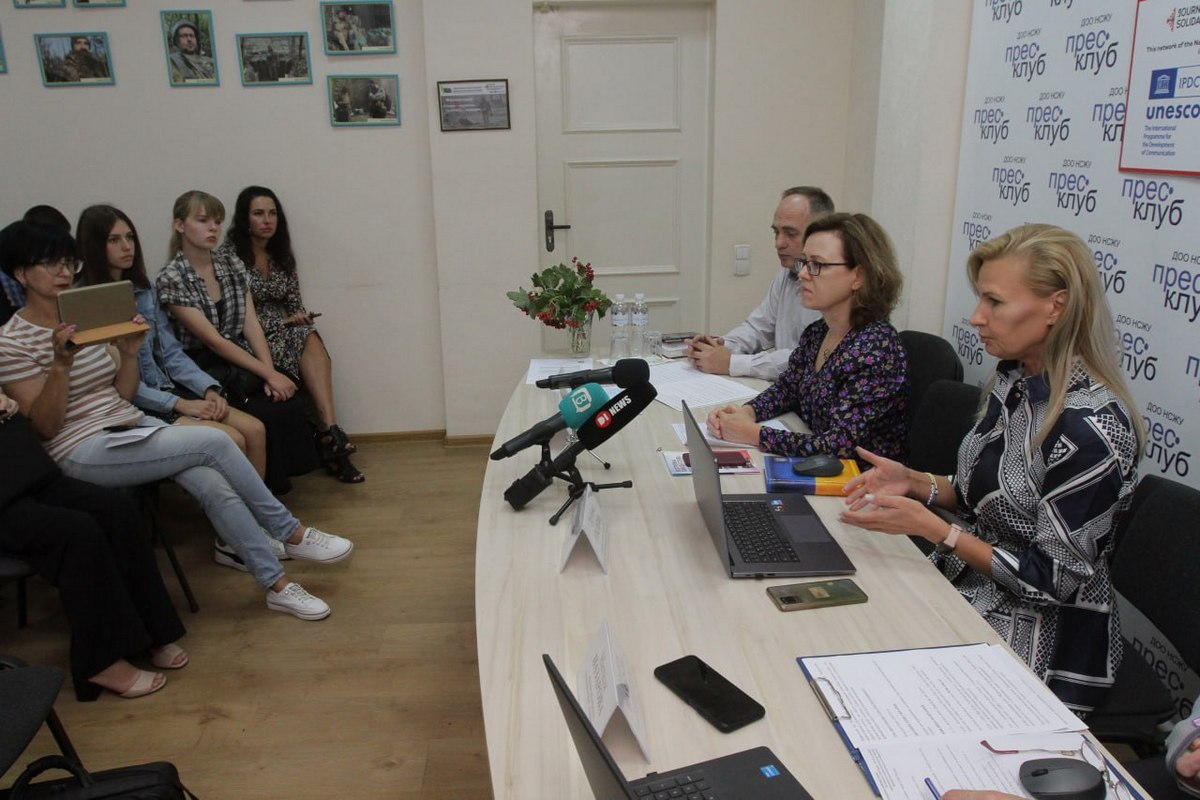
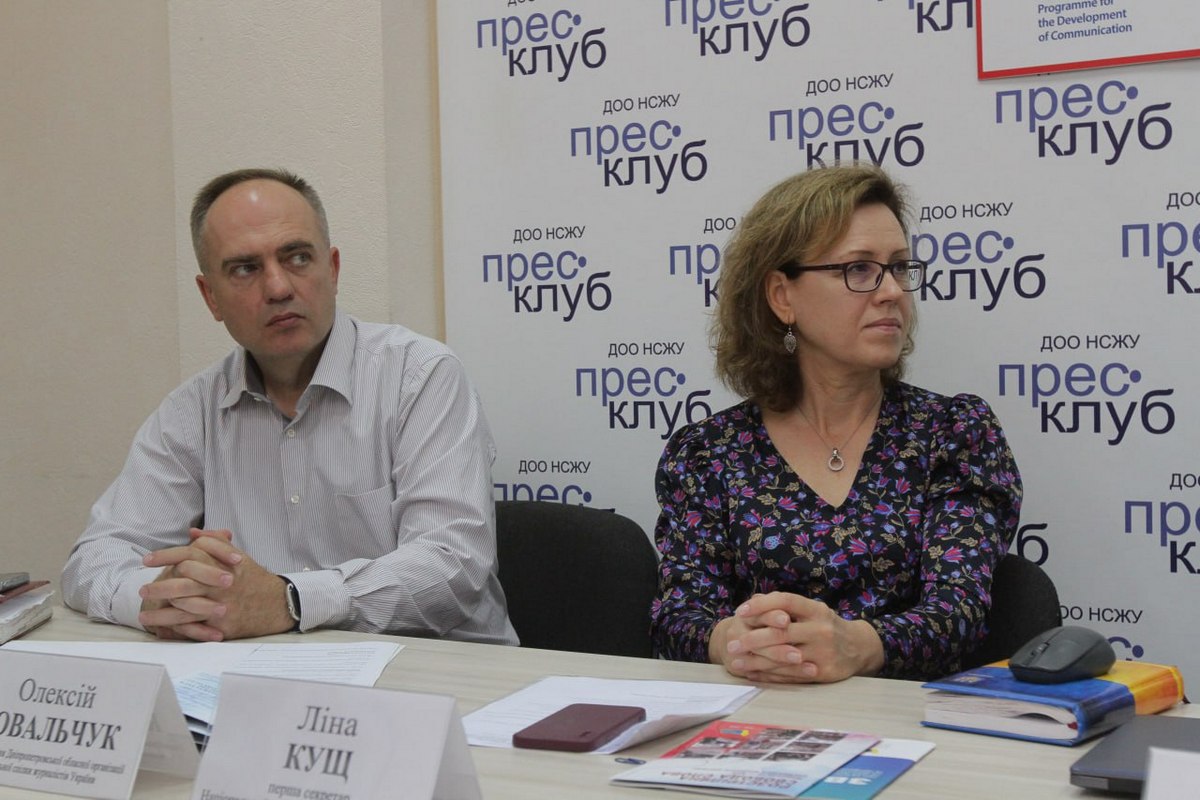
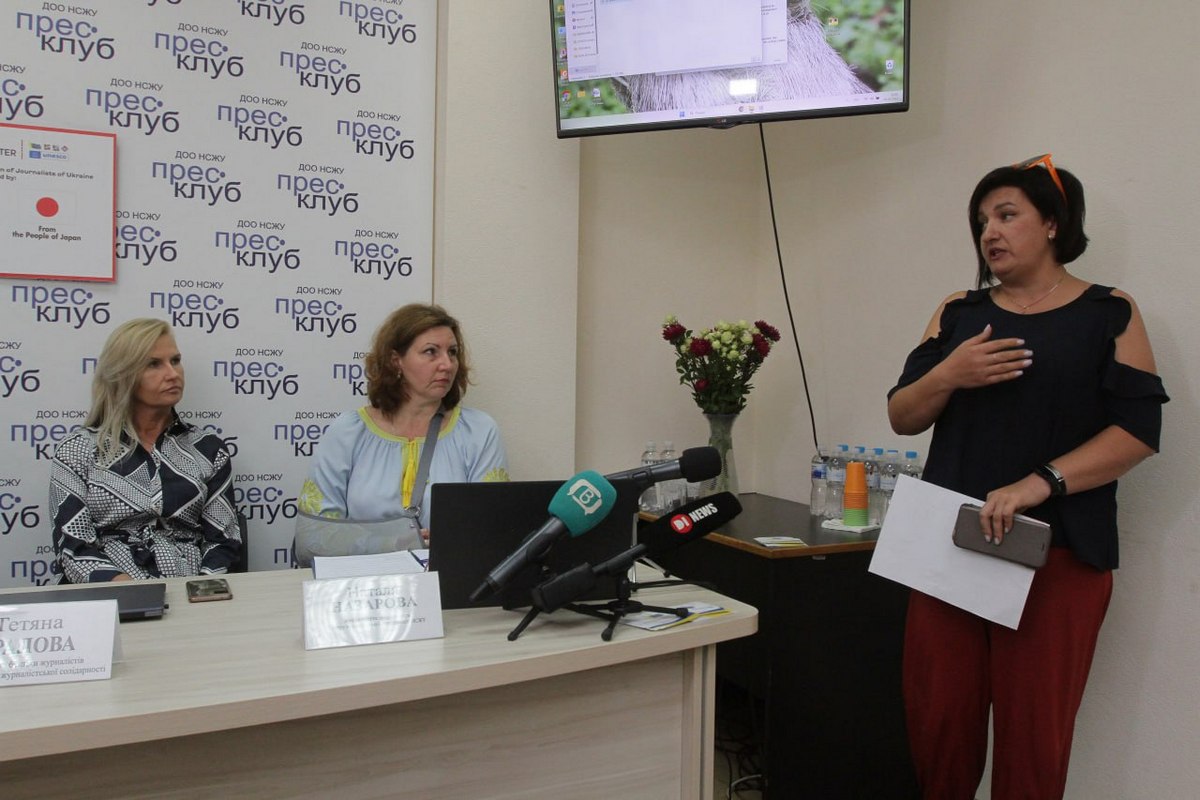
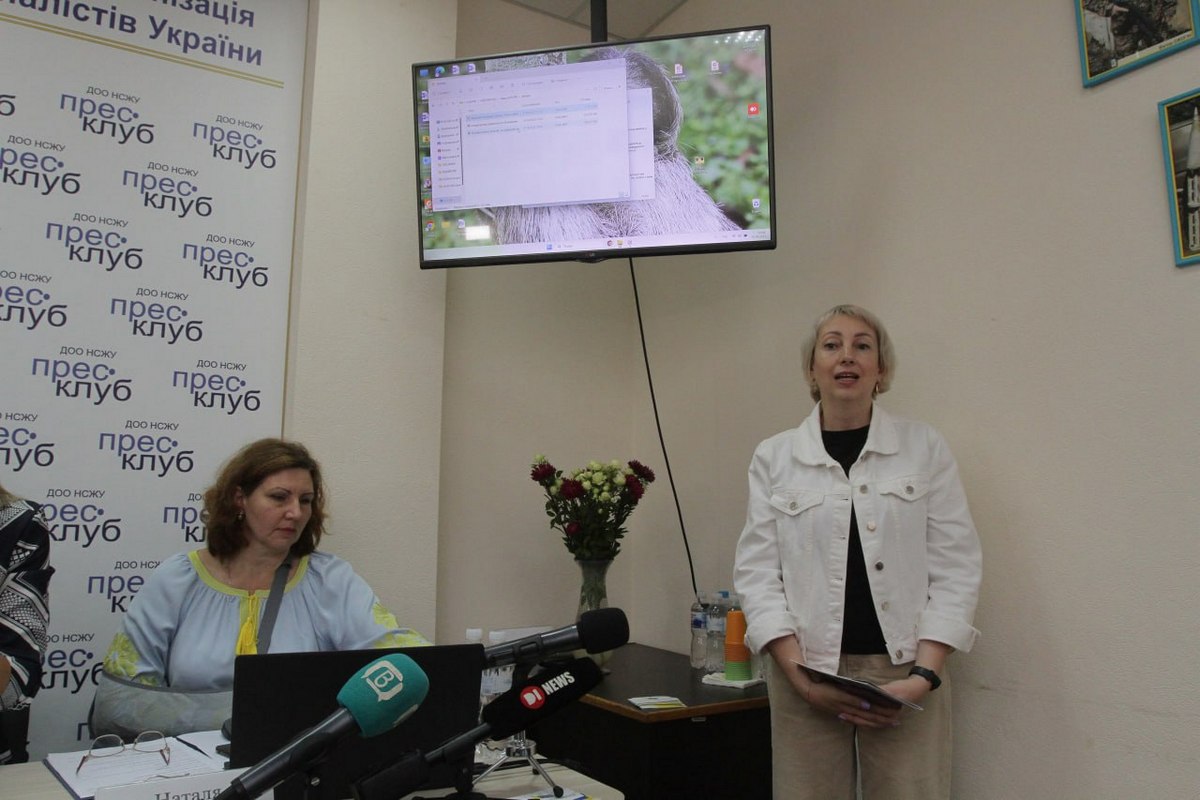
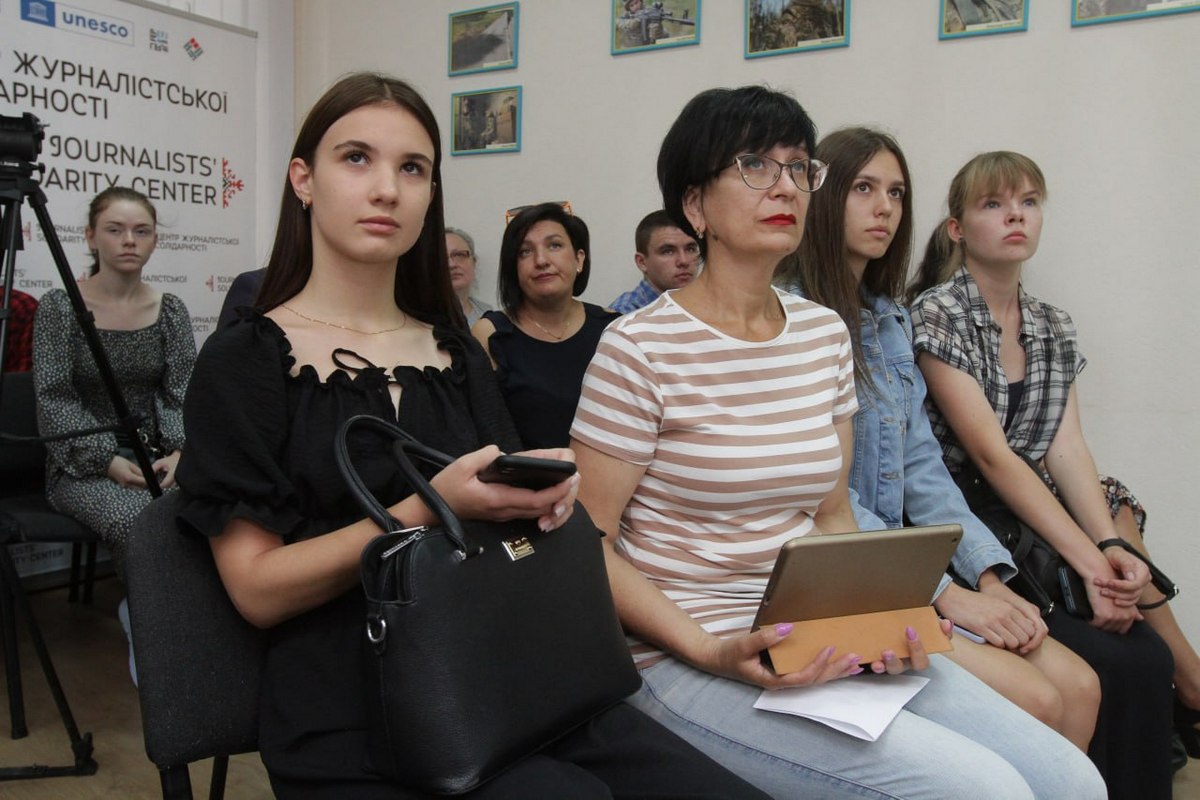
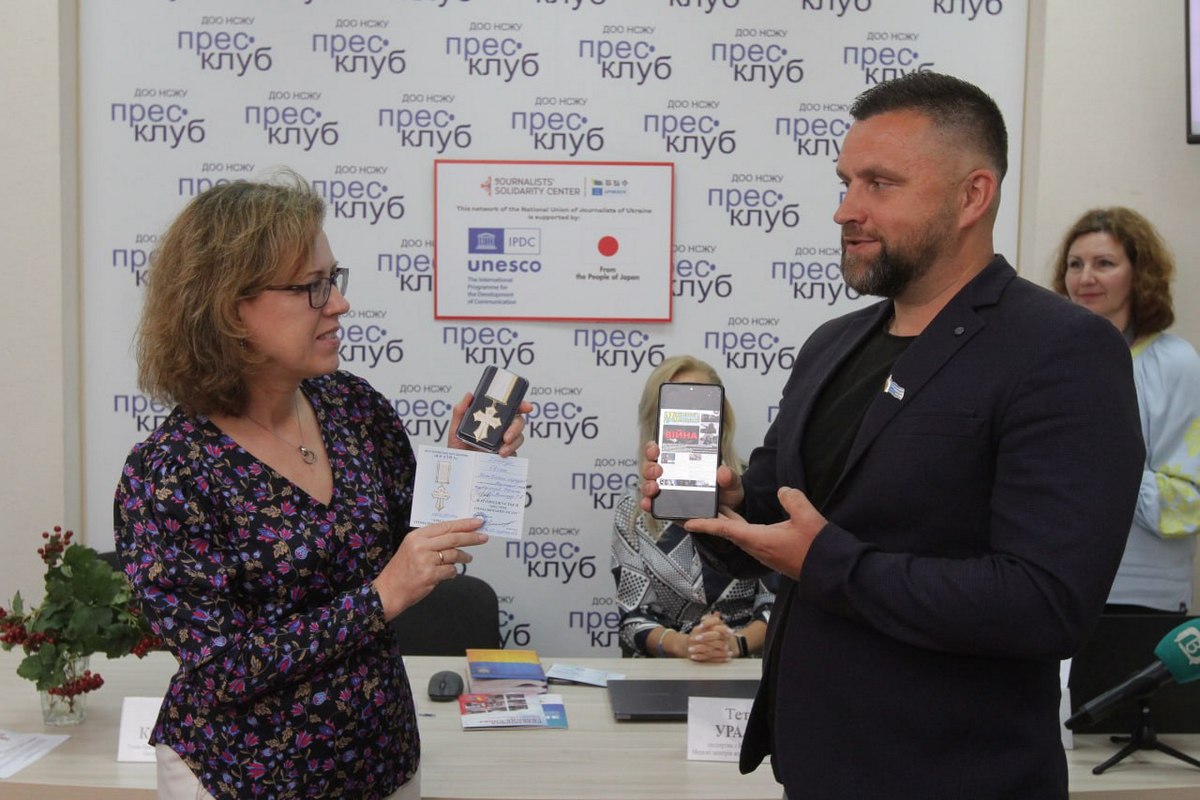
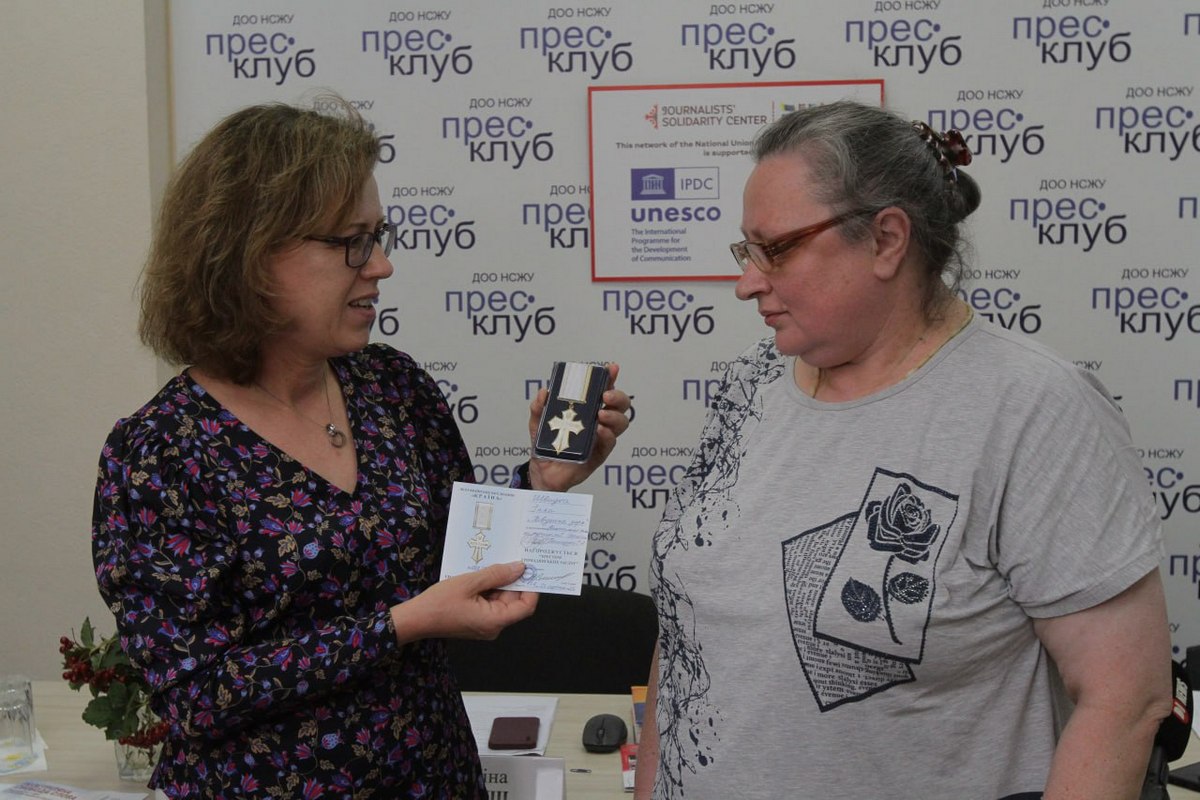

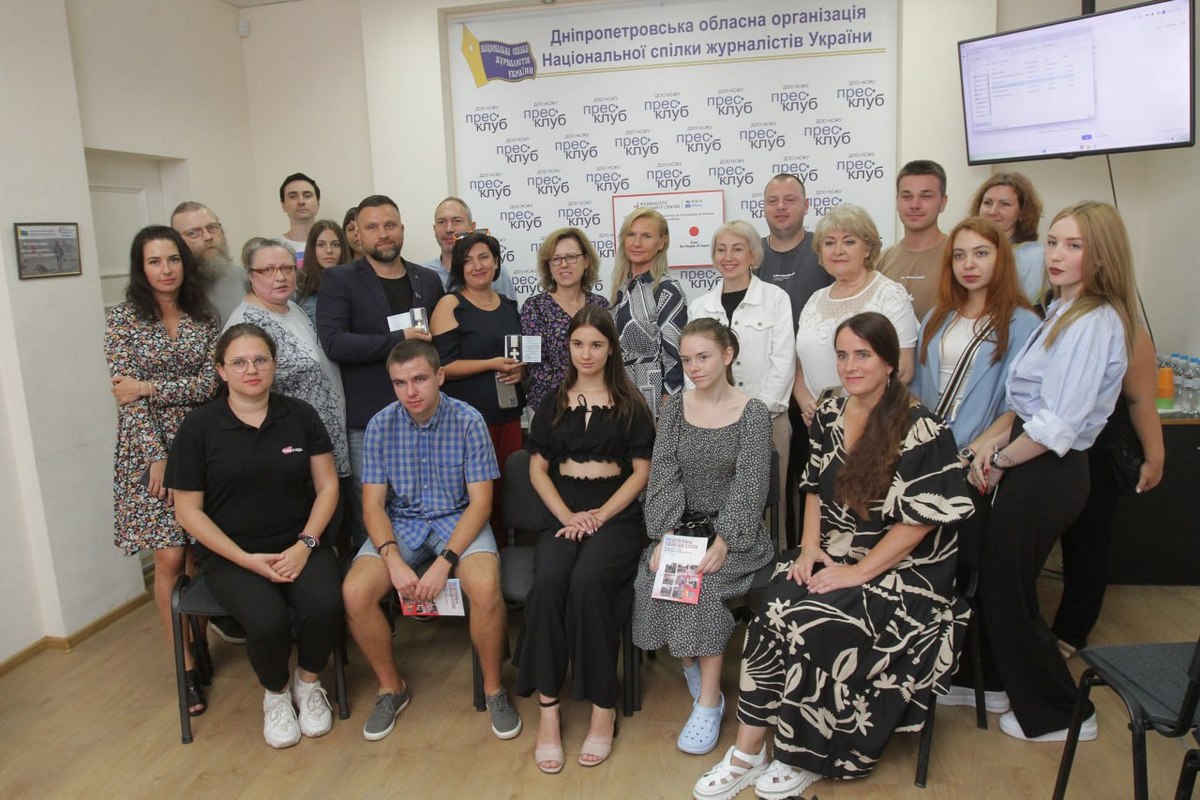
The meeting took place within the framework of the project titled Drawing Attention Of Ukrainian And International Audience To Serious Violations Of Human Rights And Crimes Against Journalists And Mass Media Committed By Russian Federation, implemented by the NUJU with the financial support of the Swedish non-profit organization, Civil Rights Defenders.
Dnipro JSC’s Information Service

 THE NATIONAL UNION OF
JOURNALISTS OF UKRAINE
THE NATIONAL UNION OF
JOURNALISTS OF UKRAINE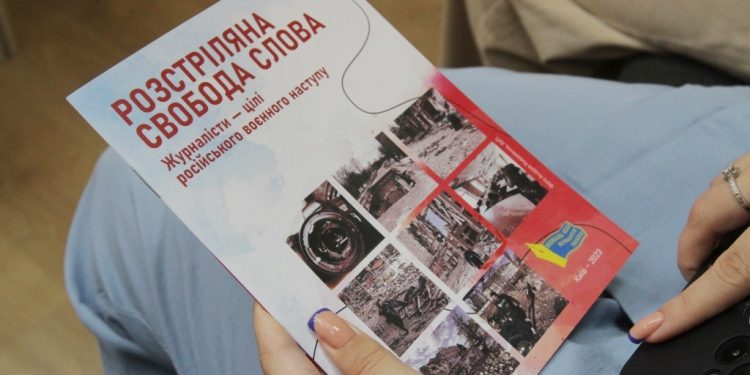
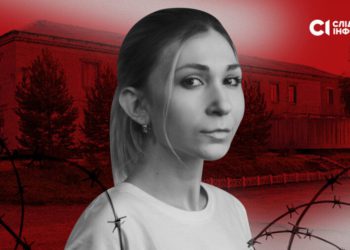















Discussion about this post